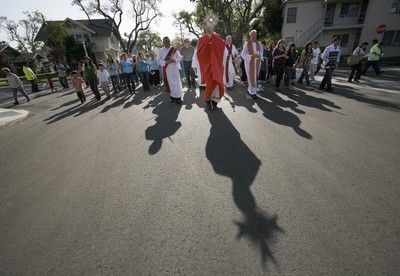Popes do not resign. But a pope can clean house. And a pope can show contrition, on his own behalf and on behalf of an entire generation of bishops, for what was done and left undone in one of Catholicism’s darkest eras.
This is Holy Week, when the first pope, Peter, broke faith with Christ and wept for shame. There is no better time for repentance.”
UPDATE II: Douthat has added some more thoughts on the subject over at his blog:
Call out bad reporting, by all means; defend yourself against unjustified allegations, definitely. But don’t spend too much time complaining about a double standard, or griping about being unfairly targeted. Because, after all, the church is the church — not the public school bureaucracy, not the Boy Scouts or Girl Scouts, not the American juvenile detention system or the Scientologists or any other organization that you might not be surprised to discover has a problem with sexual abuse. Catholic scandals are worse even when they’re the same as everybody else’s, because it’s Catholicism’s business to be better. And the church is a target because it asks to be a target — because it aspires to set a higher standard, and answer to a higher master, than princes, governments and civic institutions. Because it still claims, in an age of religious relativism, to be the one true faith, the new Israel, the only Christian body entrusted with the “fullness of Christ’s salvific mystery.” Because its size, its antiquity, its intellectual, theological and artistic patrimony, and the power it exerts over millions upon millions of souls tend to buttress these extraordinary claims. And because extraordinary claims will always, and should always, attract extraordinary scrutiny, from inside and from without.
You’ll want to read the rest.

